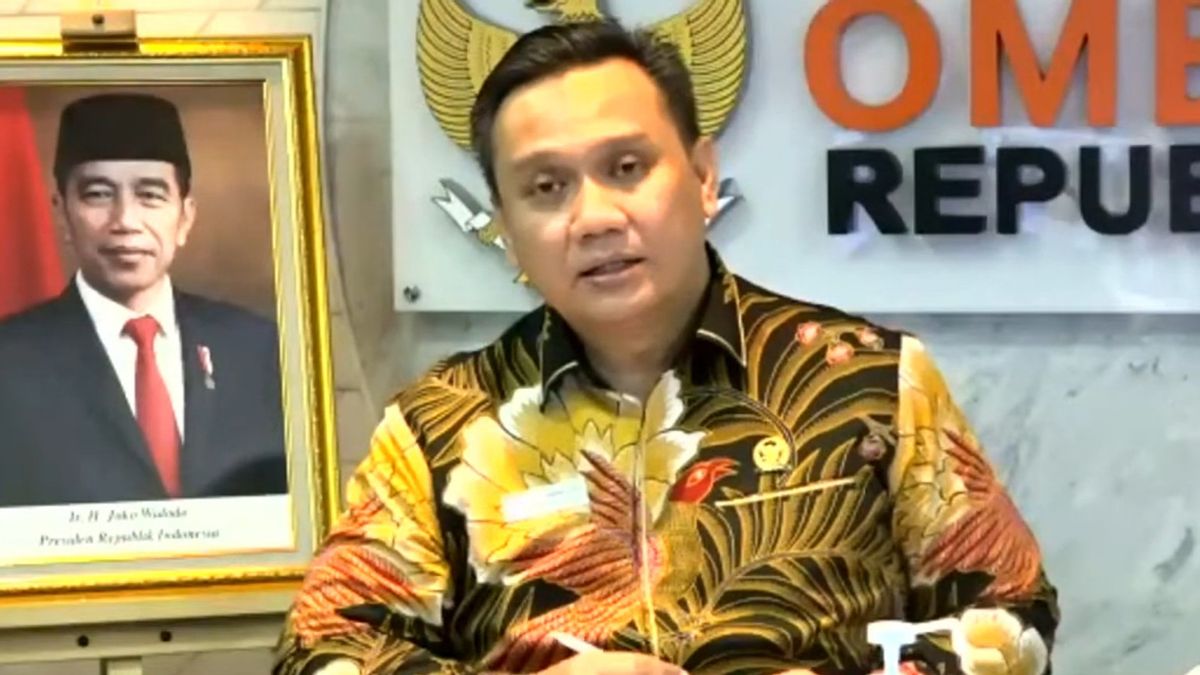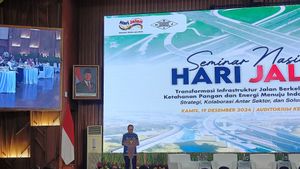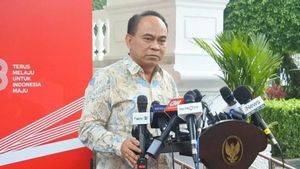JAKARTA - The Ombudsman of the Republic of Indonesia indicates the potential for maladministration in the discourse of importing 1 million tons of rice that will be carried out by the government. Therefore, Yeka Hendra Fatika, member of the Indonesian Ombudsman, asked that the rice import polemic needs to be explored.
"We see that the rice import policy and food management in Indonesia still have several problems that have the potential to contain maladmissitracy in them," he said in a virtual press conference, Wednesday, March 24.
The plan to import rice, said Hendra, was issued at a time when domestic production had no problems. In fact, there is no problem even at the rice mill at the mill level. Because of that, his party considered that there was an error in deciding the rice import policy this year.
"We see that there is something wrong in this decision," he said.
Furthermore, he questioned the mechanism of a limited coordination meeting (Rakortas) to determine the discourse on rice imports this year. According to Hendra, the decision to import rice must be supported by a number of valid data. This is because this commodity has a broad impact from an economic, social, and political perspective.
"Like it or not, this rice import policy must be understood by everyone. So if rice imports are forced, the public must understand so as not to leave a fuss," he said.
Moreover, said Hendra, when referring to the forecast figures issued by the Central Statistics Agency (BPS) related to rice harvest products, there was a surplus of 14.54 million tons of rice. Therefore, the Ombudsman thinks that the rice import policy should not be implemented.
Based on BPS data, the potential production for the January to April 2021 period is estimated to increase by 3.08 million tons or 26.84 percent compared to last year's 11.46 million tons. Meanwhile, the potential area for rice harvest in the subround of January to April 2021 reaches 4.86 million hectares. An increase of around 1.02 million hectares or 26.53 percent when compared to the subround from January to April 2020 of 3.84 million hectares.
Regarding the rice import plan that will have an impact on the decline in rice prices, Hendra revealed that the plan did not affect rice prices. This is because, he said, even without rice imports, the national rice price would certainly fall.
"Because (we) are entering the harvest season. The theory of supply and demand, where the supply is large, the price at the demand level will definitely fall. So it is not caused by the discourse on imports," he explained.
Previously, Trade Minister Muhammad Lutfi emphasized that he would not import rice during the main harvest season. He said, the import quota was prepared in advance to meet the readiness of Bulog's rice stock reserves.
"I guarantee that there will be no imports of rice during the main harvest season, and today there will be no imported rice that will destroy the farmers. Because there is no import yet," he said in a press conference, Friday, March 19.
Lutfi said the proposal to import 1 million tons of rice through Bulog was based on his concern over the dwindling stock of CBP.
Furthermore, Lutfi emphasized that he did not intend to frighten the public with the threat of scarcity of rice and high prices. This is because rice is the most important food commodity in Indonesia and is vulnerable to becoming a target for speculators if the stock is running low.
"We are talking about iron stock. If it is fulfilled, it will not be imported. It is my job to think of something that has not been thought of. This is what I do. I am not scaring. There are a lot of coefficients, if there is anything, you blame me. , "he said.
The English, Chinese, Japanese, Arabic, and French versions are automatically generated by the AI. So there may still be inaccuracies in translating, please always see Indonesian as our main language. (system supported by DigitalSiber.id)













